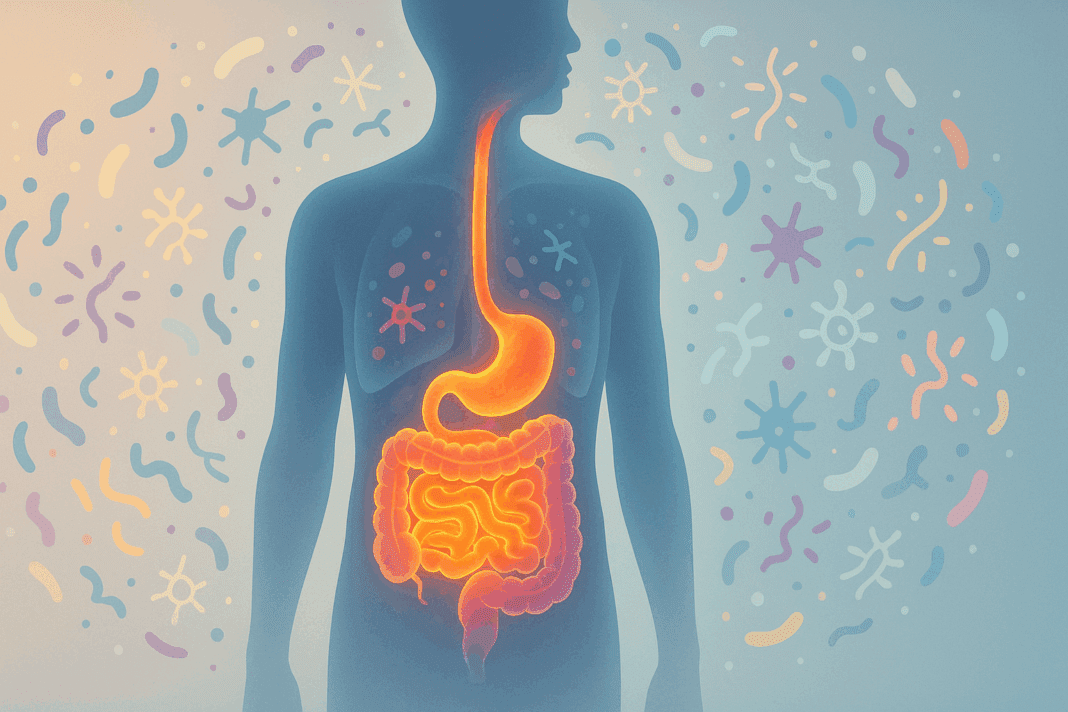Introduction: Exploring the Meaning of Digestion and Its Role in Human Health
When we think about what keeps us alive and thriving, food is often the first thing that comes to mind. Yet, beyond the meals we consume lies a complex, finely tuned system that transforms nutrients into energy, sustains bodily functions, and protects us from disease. At the center of this process is digestion—a word we use casually, but one that carries profound biological significance. To truly understand the meaning of digestion is to gain insight into one of the most essential mechanisms of human physiology. From the moment food enters the mouth to its final exit from the body, digestion orchestrates a symphony of mechanical and chemical actions designed to unlock the nutrients embedded in every bite. This article will not only define digestion in scientific terms but also explore how a healthy digestive process supports everything from immunity to mental clarity. Through a detailed, medically accurate journey, we will uncover why understanding digestion is not just a matter of curiosity but a fundamental key to lifelong wellness.
You may also like: Macronutrients vs Micronutrients: What the Simple Definition of Macronutrients Reveals About Your Diet and Health
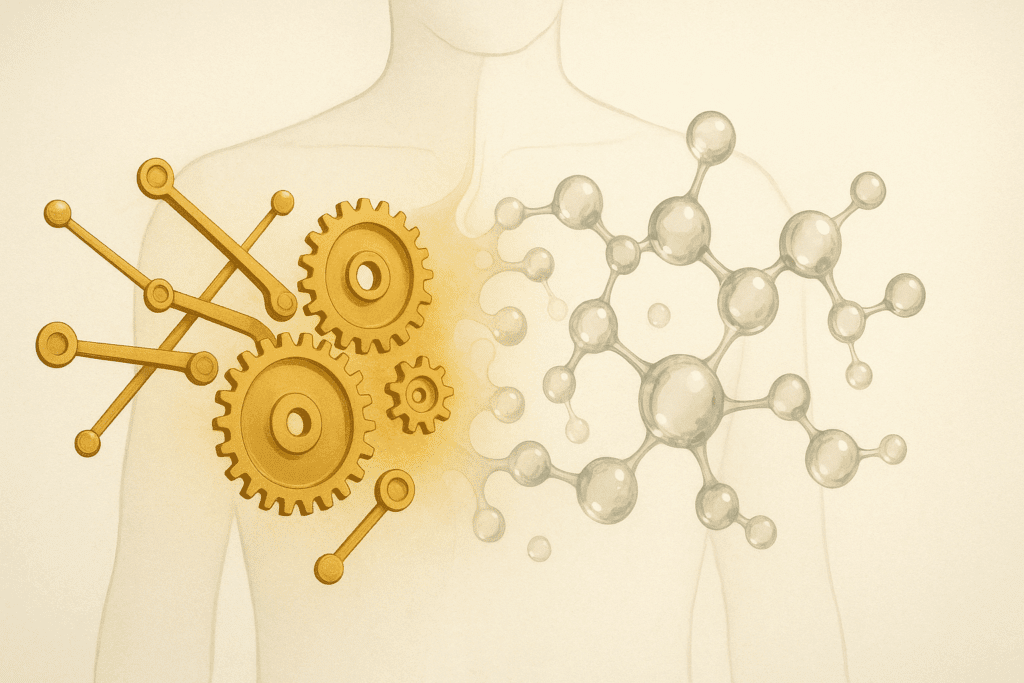
Understanding the Digestion Definition: A Scientific Overview
To begin our exploration, it is essential to clarify the digestion definition in clinical and biological contexts. Digestion refers to the physiological process through which food is broken down into smaller molecules that can be absorbed and utilized by the body. It involves both mechanical actions, such as chewing and stomach contractions, and chemical processes facilitated by enzymes and digestive juices. When you define digestion from a medical perspective, it encompasses multiple organ systems—including the mouth, esophagus, stomach, small intestine, large intestine, liver, pancreas, and gallbladder—working together to ensure that carbohydrates, proteins, fats, vitamins, and minerals are extracted and absorbed efficiently.
Beyond its textbook definition, digestion also plays a pivotal role in regulating energy levels, maintaining homeostasis, and supporting immune defenses. Modern medicine continues to explore how disruptions in digestion contribute to chronic conditions such as irritable bowel syndrome (IBS), inflammatory bowel disease (IBD), food allergies, and even neurodegenerative disorders. Understanding the digestion definition, therefore, is not just about identifying a set of biological steps; it is about recognizing its systemic impact on overall health. This deeper appreciation forms the foundation for making informed dietary choices and adopting lifestyle habits that promote long-term wellness.
The Mechanics of Digestion: From Ingestion to Absorption
The process of digestion begins with ingestion—the act of eating. Chewing, or mastication, is the first mechanical step, breaking down food into smaller pieces to increase surface area for enzymatic action. Saliva, secreted by salivary glands, contains the enzyme amylase, which starts the chemical breakdown of carbohydrates right in the mouth. The food bolus then travels down the esophagus via a coordinated wave-like motion called peristalsis, which propels it into the stomach.
Once inside the stomach, digestion intensifies. The stomach’s muscular walls churn food while secreting gastric juices rich in hydrochloric acid and the enzyme pepsin. This acidic environment not only helps break down proteins but also kills harmful pathogens. From there, the partially digested food—now called chyme—enters the small intestine, where the majority of nutrient absorption occurs. The pancreas secretes enzymes to digest fats, proteins, and carbohydrates, while the liver produces bile to emulsify fats, enhancing their breakdown. Villi and microvilli lining the intestinal walls absorb the digested nutrients into the bloodstream.
The final stage of digestion takes place in the large intestine. Here, water and electrolytes are reabsorbed, and beneficial gut bacteria further ferment undigested fibers to produce short-chain fatty acids and vitamins like K and B12. Waste products are then compacted into feces and excreted. Understanding the meaning of digestion as a continuous, dynamic process highlights the importance of every organ’s role in maintaining digestive efficiency and overall health.
Why Digestion Matters: Health Implications of an Efficient System
To fully grasp the importance of digestion, one must consider what happens when the system is compromised. Poor digestion can lead to a wide range of symptoms, from bloating and discomfort to nutrient deficiencies and chronic fatigue. Malabsorption of vitamins and minerals can impair immune function, delay wound healing, and negatively impact cognitive performance. Conditions such as leaky gut syndrome—a controversial but increasingly studied phenomenon—suggest that disruptions in the gut lining may allow harmful substances to enter the bloodstream, contributing to systemic inflammation.
Moreover, recent research has revealed the gut-brain axis, a bidirectional communication network between the gastrointestinal tract and the central nervous system. The vagus nerve, neurotransmitters like serotonin (90% of which is produced in the gut), and gut microbiota all play roles in mood regulation, stress response, and mental clarity. Thus, understanding the meaning of digestion extends far beyond nutrient breakdown; it encompasses a broader recognition of digestion’s influence on mental, metabolic, and emotional health.
An efficient digestive system also supports metabolic flexibility, the body’s ability to switch between burning carbohydrates and fats for energy. This flexibility is vital for maintaining stable blood sugar levels, managing weight, and preventing metabolic disorders such as type 2 diabetes. Therefore, when we define digestion in the context of modern health challenges, we must acknowledge its far-reaching impact across multiple physiological domains.
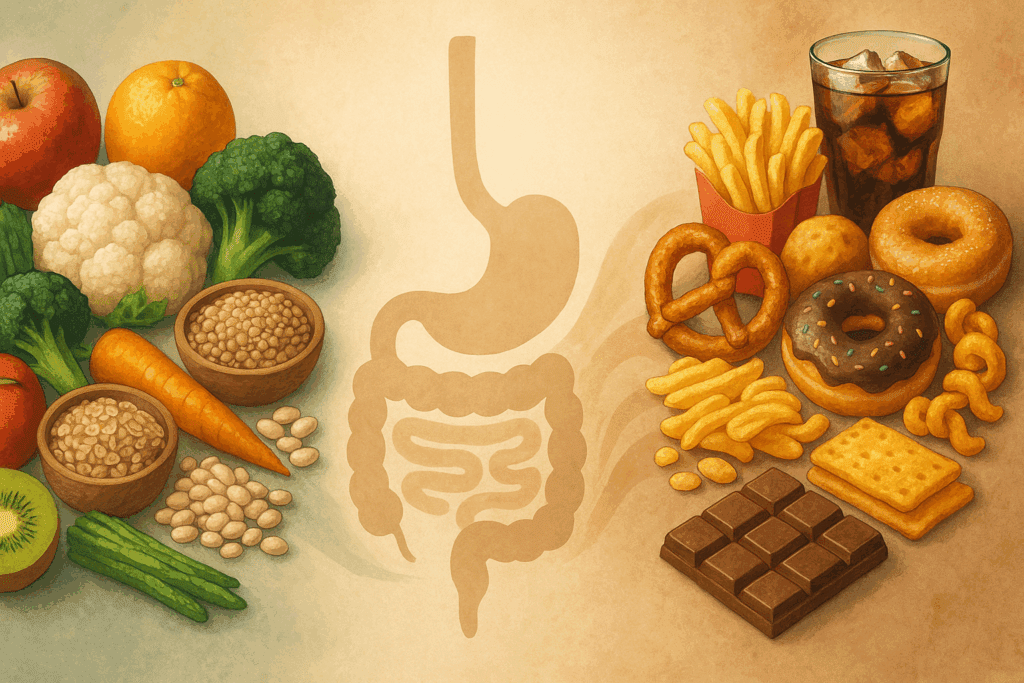
Nutrition and Digestion: How Dietary Choices Affect the Digestive Process
The relationship between what we eat and how our body digests it cannot be overstated. The type, quality, and timing of food intake significantly influence digestive efficiency. Whole foods rich in fiber, such as fruits, vegetables, legumes, and whole grains, promote healthy bowel movements and provide prebiotics—nondigestible fibers that nourish beneficial gut bacteria. In contrast, highly processed foods high in sugars, saturated fats, and additives can disrupt microbial balance, slow transit time, and cause gastrointestinal distress.
Protein digestion, for example, requires adequate stomach acid and enzymatic support. People who take proton pump inhibitors (PPIs) for acid reflux may experience diminished protein breakdown, leading to nutritional gaps. Similarly, lactose intolerance, a common condition, results from insufficient lactase enzyme production, causing discomfort when dairy products are consumed. In such cases, understanding one’s digestive limitations can help tailor dietary strategies to support optimal health.
Meal timing also plays a role. Eating late at night or under stress can impair digestive function, as the body diverts energy away from the gastrointestinal tract during times of tension. Mindful eating—a practice that involves slowing down, chewing thoroughly, and paying attention to hunger and satiety cues—has been shown to improve digestive outcomes. Ultimately, understanding the digestion definition within the context of nutrition provides practical insights into how we can eat not only for satisfaction but also for systemic wellness.
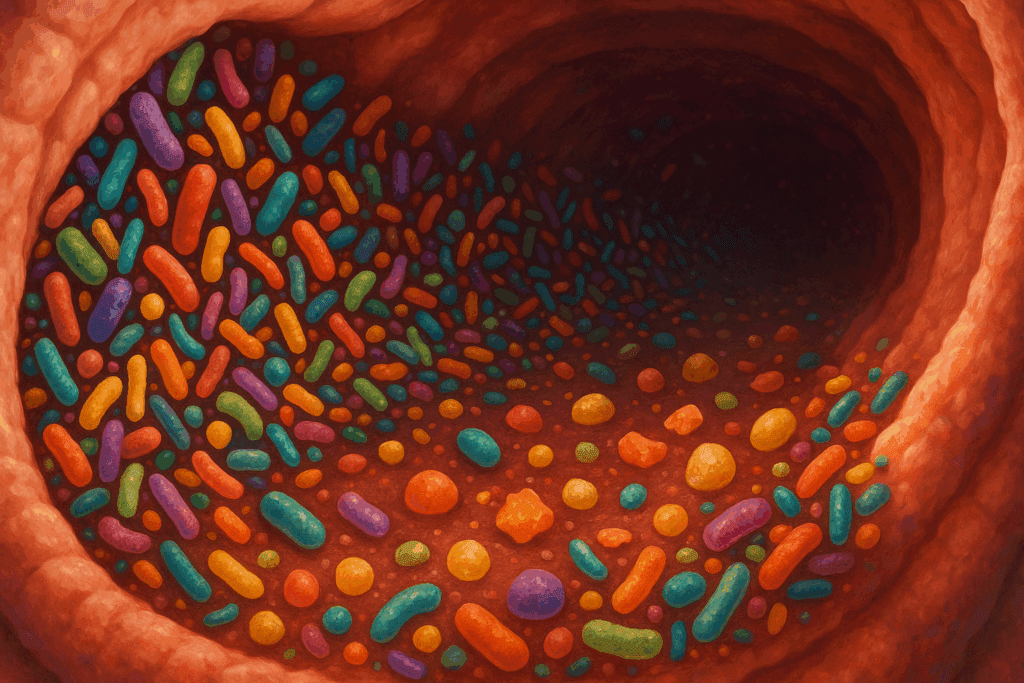
Microbiome and Digestion: The Role of Gut Bacteria in Nutrient Processing
No discussion of digestion would be complete without addressing the gut microbiome—a community of trillions of microorganisms residing primarily in the large intestine. These microbes play a crucial role in breaking down complex carbohydrates, synthesizing vitamins, regulating immune responses, and even influencing behavior. Disruptions to the microbiome, often caused by antibiotics, poor diet, or stress, can lead to dysbiosis—an imbalance linked to conditions such as obesity, depression, and autoimmune diseases.
Research into the microbiome has transformed our understanding of digestion. For example, certain bacteria specialize in fermenting dietary fiber to produce short-chain fatty acids (SCFAs) like butyrate, which nourish colon cells and exhibit anti-inflammatory properties. Other strains help metabolize bile acids and modulate fat absorption. Probiotic foods such as yogurt, kefir, sauerkraut, and kimchi introduce beneficial bacteria into the gut, while prebiotic-rich foods feed existing colonies, promoting a more diverse and resilient microbiome.
Understanding the meaning of digestion in the 21st century means recognizing it as a collaborative process between our cells and our microbial partners. This synergy emphasizes the importance of dietary diversity, as different fibers and plant compounds support different microbial species. Personalized nutrition, based on one’s microbiome composition, may soon become a cornerstone of digestive healthcare.
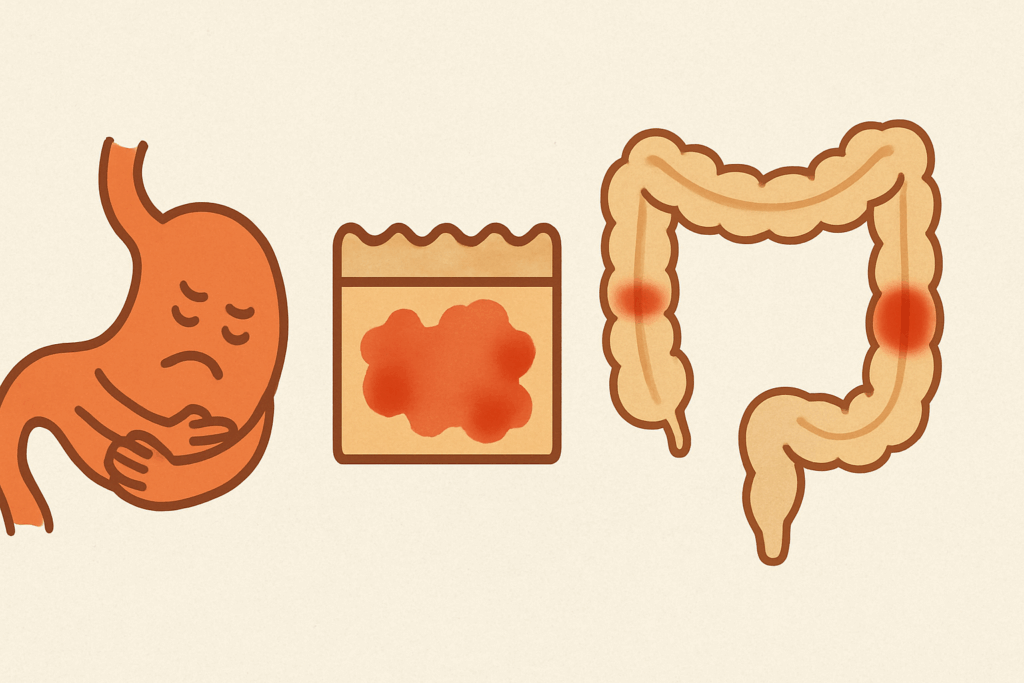
Common Digestive Disorders and What They Reveal About the System
Despite its resilience, the digestive system is vulnerable to numerous disorders that can significantly affect quality of life. Gastroesophageal reflux disease (GERD), characterized by acid reflux and heartburn, often results from weakened lower esophageal sphincter muscles. Chronic constipation or diarrhea may indicate irritable bowel syndrome (IBS), a functional disorder influenced by stress, diet, and gut sensitivity. Inflammatory bowel diseases like Crohn’s disease and ulcerative colitis involve immune dysregulation and can lead to severe tissue damage and nutrient malabsorption.
Celiac disease, an autoimmune reaction to gluten, damages the small intestine’s villi and impairs nutrient absorption. Small intestinal bacterial overgrowth (SIBO), where excessive bacteria colonize the small intestine, can lead to bloating, gas, and weight loss. These disorders highlight the intricacy of the digestive system and underscore the importance of early diagnosis and targeted treatment.
When we define digestion through the lens of pathology, we gain valuable insights into how delicate the balance of this system can be. Advances in diagnostic tools, such as hydrogen breath tests and microbiome sequencing, are helping clinicians better understand and treat these complex conditions. Educating oneself about the signs and symptoms of digestive dysfunction empowers patients to seek timely intervention and make informed decisions about their health.

Supporting Digestive Health Through Lifestyle and Preventive Strategies
Promoting digestive wellness requires a multifaceted approach that integrates diet, lifestyle, stress management, and hydration. Regular physical activity enhances gastrointestinal motility and reduces the risk of constipation. Staying hydrated supports the breakdown of food and the smooth passage of waste. Avoiding excessive alcohol, smoking, and overly processed foods can also reduce inflammation and preserve mucosal integrity.
Stress, often underestimated, plays a pivotal role in digestion. Chronic stress activates the sympathetic nervous system, diverting blood flow away from the gut and impairing enzymatic activity. Practices such as yoga, meditation, and deep breathing stimulate the parasympathetic nervous system, promoting rest and digestion. Sleep is another crucial factor; poor sleep quality has been linked to altered gut microbiota and increased gastrointestinal symptoms.
From a preventive standpoint, regular check-ups, colorectal screenings, and awareness of family history can help detect potential issues early. Understanding the meaning of digestion as a dynamic interplay between behavior, biology, and environment encourages a proactive approach to health. Instead of waiting for symptoms to appear, individuals can cultivate habits that foster resilience and balance within their digestive systems.
Frequently Asked Questions About Digestion: Fresh Insights into How Your Body Processes Food
1. Can emotional health affect digestion, and if so, how?
Yes, emotional health plays a profound role in digestion through what is known as the gut-brain axis. This communication network between your central nervous system and digestive system can significantly influence how your body processes food. Chronic stress, anxiety, or trauma may disrupt gut motility, alter enzyme secretion, and even influence the diversity of gut microbiota. While the clinical digestion definition focuses on the physiological breakdown of food, emerging research reveals that psychological well-being can regulate or impair this process. Understanding the broader meaning of digestion includes recognizing the interplay between mental states and gastrointestinal function, encouraging a holistic approach to health.
2. How does aging impact digestion and nutrient absorption?
As we age, several physiological changes occur that can affect digestion efficiency. Reduced saliva production, slower gastrointestinal motility, and decreased stomach acid can all impair the initial stages of digestion. Additionally, the small intestine’s ability to absorb nutrients like calcium, vitamin B12, and magnesium may decline. While textbooks often define digestion as a uniform process, aging demonstrates that the meaning of digestion evolves over a lifetime, requiring adaptations such as enzyme supplementation, altered meal timing, or increased fiber intake. Recognizing these age-related changes enhances our ability to preserve digestive health in older adults.
3. Is it possible to improve digestion without changing your diet?
Absolutely. While diet is foundational, several non-dietary strategies can enhance digestion. Simple habits such as chewing food thoroughly, eating in a relaxed environment, and maintaining a consistent mealtime routine can promote better enzyme activity and absorption. Regular movement, such as walking after meals, has been shown to stimulate intestinal peristalsis. This broader, behaviorally informed approach goes beyond the narrow digestion definition found in clinical literature, expanding the meaning of digestion to encompass lifestyle factors. Small changes in routine can have significant digestive benefits, especially when combined with mindfulness and stress reduction.
4. What are the long-term risks of poor digestion if left unaddressed?
Persistent digestive inefficiencies can lead to a cascade of health problems. These may include chronic inflammation, nutrient malabsorption, weakened immunity, and even cognitive decline due to deficiencies in vitamins like B12 or omega-3 fatty acids. When people define digestion narrowly—as just the stomach’s job—they may overlook how gastrointestinal dysfunction silently erodes systemic health over time. Understanding the true meaning of digestion involves recognizing its role in disease prevention, immune regulation, and neurological integrity. Left unmanaged, even mild digestive issues can manifest into serious chronic conditions.
5. How do different cultures view and support digestive health?
Cultural perspectives on digestion often go beyond Western scientific views. Traditional Chinese Medicine, for example, sees the gut as the center of health, emphasizing warming foods and energy balance. Ayurvedic medicine places great importance on “Agni,” or digestive fire, and advises eating according to dosha types. These ancient systems may not always define digestion the same way modern biomedicine does, but they offer valuable experiential knowledge on how to optimize it. By broadening our understanding of the digestion definition through cross-cultural insights, we gain practical strategies for achieving balance and resilience in digestive function.
6. What are some emerging technologies being developed to support digestive health?
Recent advances in health technology are transforming how we monitor and support digestion. Smart pills, equipped with sensors, can now track gut pH, temperature, and motility in real-time. Personalized microbiome analysis allows for tailored nutrition plans that align with one’s unique gut bacteria profile. These innovations are expanding how we define digestion—not just as a bodily function, but as a data-rich ecosystem open to technological intervention. As our tools become more precise, our understanding of the meaning of digestion continues to grow, offering new ways to prevent and manage digestive disorders.
7. Why is fiber so important in the digestive process, and how does it work?
Fiber acts as a multifunctional tool in the digestive system. Insoluble fiber adds bulk to stool and speeds up transit time, helping prevent constipation. Soluble fiber forms a gel-like substance that slows digestion, allowing for better nutrient absorption and blood sugar control. Additionally, certain fibers serve as prebiotics, feeding beneficial gut bacteria and enhancing microbial diversity. When we expand the digestion definition to include microbial collaboration, fiber emerges as a crucial facilitator in this partnership. Its benefits reflect the broader meaning of digestion as both mechanical and symbiotic in nature.
8. How do food intolerances and sensitivities impact digestion beyond immediate symptoms?
Food sensitivities can silently damage the digestive system over time. Repeated exposure to problematic foods may lead to low-grade inflammation, altered gut permeability, and microbiome disruption. These effects extend far beyond symptoms like bloating or discomfort, potentially influencing immune activity and cognitive health. To define digestion only by its visible symptoms is to miss the subtler, long-term disruptions that intolerances can create. Identifying and managing these sensitivities allows individuals to align more closely with the full meaning of digestion, which includes protecting the body from unnecessary inflammatory responses.
9. What role does meal spacing play in maintaining digestive health?
The timing between meals can significantly affect digestive efficiency. Allowing 4–5 hours between meals gives the migrating motor complex (MMC)—a cleaning wave in the intestines—time to remove residual food and bacteria. Snacking too frequently can interrupt this process, leading to fermentation, gas, and bacterial overgrowth. While the digestion definition typically highlights enzymatic breakdown, meal spacing adds another layer of complexity, showing how temporal patterns support digestive integrity. By understanding the meaning of digestion in terms of rhythm and rest cycles, we can adopt practices that optimize gut function naturally.
10. Can hydration alone significantly improve digestion?
Hydration plays an essential yet often underestimated role in digestion. Water is necessary for the production of saliva, gastric juices, and bile, as well as for the transport of nutrients through the intestinal lining. Dehydration can slow digestion, cause constipation, and impair enzymatic activity. When people define digestion solely by food-related processes, they may overlook how water facilitates nearly every step. Embracing a broader meaning of digestion includes appreciating water’s role not just in moving food along, but in enabling the entire digestive cascade to occur efficiently and comfortably.
Conclusion: Redefining the Meaning of Digestion for Whole-Body Health
In unraveling the question, “What is the meaning of digestion?” we uncover far more than a series of biochemical events. Digestion is a gateway to understanding human health on a deeper, more interconnected level. It reflects the harmony of organs, the intelligence of the microbiome, and the influence of our choices, thoughts, and environments. When we define digestion accurately and expansively, we begin to see how central it is to every facet of well-being—from nutrient absorption and immune defense to emotional resilience and mental acuity.
Incorporating the digestion definition into our daily awareness invites us to make more informed dietary choices, adopt mindful habits, and prioritize preventive care. It encourages respect for the intricate systems within us and a commitment to nourishing them holistically. As science continues to explore new frontiers in gastroenterology and microbiology, our understanding of digestion will only deepen, further affirming its vital role in optimizing health across the lifespan. Recognizing the meaning of digestion not only empowers individuals to improve their quality of life but also underscores the profound intelligence of the human body—a system designed for balance, adaptation, and enduring wellness.


